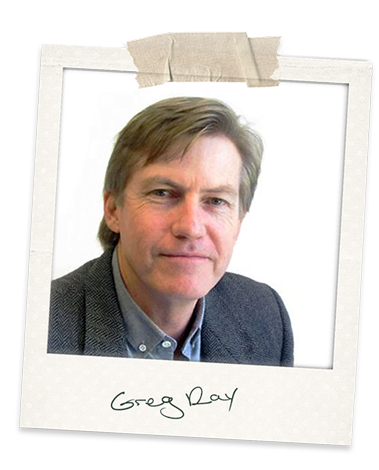Winston Churchill said that, in wartime, Truth was so precious she had to be attended by a bodyguard of lies.
It’s a picturesque figure of speech, satisfying in its faithful representation of reality but also ominous – to me anyway. Ominous because it makes me wonder what happens to the members of this bodyguard when they are no longer needed. Are they sacked? Made redundant? Put aside until the next war?
Or do they decide for themselves that their role is always vital, that the war never really ends and that truth is theirs to do with what they will?
Churchill’s remark suggests the bodyguard of lies is purely a wartime exigency. He was talking about a time when important military operations were protected from the enemy by active campaigns of misinformation and disinformation and his comment makes sense in that context. But his remark also implies that employment for lies in the service of Truth’s bodyguard is strictly temporary work. That when the war is over Truth can come out of hiding and we can all see her face again. The remark presupposes a society in which truth is shared as a matter of course as a fundamental element of freedom and is only sometimes obscured from view by the demands of a mortal social conflict
Clearly that isn’t true for we inhabitants of the global empire of money. It is plain to me that Truth, wherever she might be found today, is being comprehensively shielded by ever-increasing battalions of fierce and heavily armed bodyguards, dedicated to protecting truth from scrutiny. But I suspect that most of the bodyguards no longer have the faintest idea what truth they are meant to be attending.
A quick read of most western news sources today will illustrate my point. The truth about the causes of war is obscured with great vigour – as usual. The bodyguard is out in force, working in a hundred ways to keep truth out of sight. Same with the truth about the reasons for war. Closely guarded and hardly able to be glimpsed amid the milling crowds of noisy bodyguards.
How about the true reasons why millions are being plunged into poverty? Why is that happening? Ask the bodyguards. They are the only ones authorised to speak on the subject and their script is, again, a narrow one.
The loyal and royal corps of bodyguards retained by the global empire of money are good at their work. Economists, journalists, tech moguls, politicians, academics, presidents, bots and bureaucrats do their bodyguard work, reading their scripts and guarding the truth from prying eyes. Thanks to them dense thickets of lies, half-truths and distracting irrelevancies sprout wherever we look.
We citizens learn to doublethink and we do it automatically. On demand, we can believe almost anything the bodyguards tell us to believe. We even believe we are members of free and democratic societies governed by people who have our best interests at heart. Many of us will take offence if somebody suggests things might be otherwise. Yet our leaders lie, our press lies and we accept this at least to be true. Most tellingly, we don’t actually demand honesty. Perhaps we feel deep down that we don’t deserve it. Possibly we believe we “can’t handle the truth”. Maybe we are so accustomed to seeing the bodyguards at work – apparently attending truth – that they make us feel secure. Perhaps we imagine precious Truth is safer in their obscuring hands than she would be wandering the streets for all to see and know.
Certainly the bodyguards of lies have expanded their job descriptions very greatly in recent times. Every two-bit provincial and local government department is now quite used to telling us that information about matters that directly affect our lives are such precious truths that we must pay to view. And even then the truth we seek might not be fully available. It might, for example, be “commercial in confidence”, or “Cabinet in confidence” or perhaps even – the trump card of the bodyguards – “a matter of security”.
By now we expect this, and many of us have learned to not even ask the most obvious questions. We might wonder, for example, why video footage that would prove what happened at a certain place and time is still being kept secret? Why are particular government files that might lay many rumours to rest still closed after all these years? We are advised by the bodyguards to ridicule people who ask too many questions. They might be “conspiracy theorists”. They might be spreading “disinformation”. Perhaps they are agents of some enemy, threatening our security by presuming to want to know the truth.
Surely nothing breeds rumours better than secrecy, and nothing dispels them better than the truth, backed up with verifiable evidence. And yet, somehow, we have arrived at a point where it is slightly strange to even acknowledge those facts and where it seems normal, sane and sensible to accept lies, secrecy and distortion, even in the face of contradictory evidence.
We accept people being harassed, sued and jailed for telling unpalatable truths that our rulers would prefer were kept hidden.
Where then is Truth? In what place is she being held? Has anybody seen her lately?
If we are not allowed to see her then how do we know she is still alive?
Another comment on Truth and war, different from Churchill’s, was made in the early 1800s by Spanish artist Francisco Goya. His series of etchings titled “Disasters of War” was not published in his lifetime, apparently because it was deemed dangerously critical of authorities. Goya saw war from a different perspective from Churchill. Not a challenging chess game to be enjoyed by clever strategists but a carnival of horrors visited on ordinary people.
As for Truth?
Truth is Dead, was Goya’s comment, pictured above.
He’s right, I think, but his comment is just Churchill’s from a different viewpoint. Churchill saw his job as obscuring the truth behind a bodyguard of lies while Goya expressed the frustration and sorrow of ordinary people who no longer knew what to believe.
Knowledge, aka Truth, is power. Withholding truth is exerting power. To those from whom Truth is concealed she might as well be dead.



